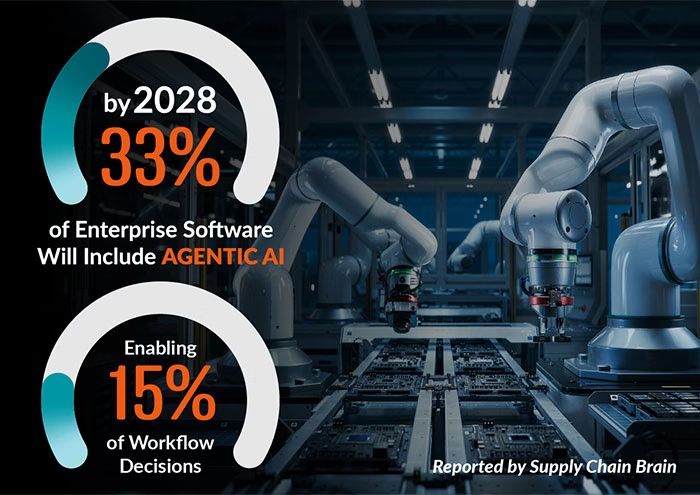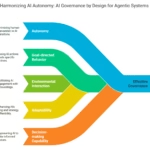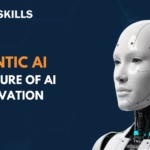“`html
The Dawn of Agentic AI: Trends, Impact, and Autonomous Systems
Estimated reading time: 15 minutes
Key Takeaways
- Agentic AI represents a significant paradigm shift, moving beyond traditional AI to systems capable of independent action and goal achievement.
- Key **agentic AI development trends 2025** include hyper-autonomy, advanced decision-making under uncertainty, proactive engagement, sophisticated multi-agent collaboration, and domain-specific specialization.
- The **impact of agentic AI on software development** is transformative, promising automated code generation, intelligent project management, enhanced UX design, and self-optimizing systems.
- **Agentic AI decision making** is the core intelligence, powered by techniques like reinforcement learning, game theory, and planning algorithms.
- The emergence of sophisticated **agentic AI autonomous systems** is set to revolutionize sectors from robotics to healthcare and finance.
- Navigating the rise of agentic AI requires addressing critical challenges related to accountability, bias, security, and ethical governance.
- Staying informed about **agentic AI trends 2025** is crucial for understanding and leveraging this rapidly evolving technology.
Table of contents
- The Dawn of Agentic AI: Trends, Impact, and Autonomous Systems
- Key Takeaways
- Deconstructing Agentic AI: Beyond Traditional AI
- The Forefront: Key Agentic AI Trends for 2025
- Transformative Impact: Agentic AI on Software Development
- Agentic AI Decision Making: The Engine of Autonomy
- The Era of Agentic AI Autonomous Systems
- Navigating the Landscape: Challenges and Ethical Considerations
- Conclusion
We stand at the precipice of a technological revolution, driven by the rapid acceleration of Artificial Intelligence. Forget the algorithms that merely analyze or predict; the true paradigm shift is here, heralded by **agentic AI**. This isn’t just about smarter software; it’s about AI systems capable of acting with a degree of autonomy, pushing the boundaries of what machines can achieve. As we look towards the horizon, understanding **agentic AI development trends 2025** becomes paramount. These trends signal a profound move towards AI that can think, decide, and act independently to achieve specific goals. At its core, agentic AI involves entities—agents—that perceive their environment, make decisions, and execute actions autonomously. This post will delve into the key **agentic AI trends 2025**, explore the significant **impact of agentic AI on software development**, and examine the rise of sophisticated **agentic AI autonomous systems**. We’ll also shed light on how **agentic AI decision making** underpins these remarkable advancements.
Deconstructing Agentic AI: Beyond Traditional AI
To truly grasp the potential of agentic AI, we must first define it precisely. **Agentic AI** refers to artificial intelligence systems composed of autonomous agents. These agents are designed to act independently and exhibit goal-directed behavior, setting them apart from their predecessors.
The distinction between agentic AI and traditional AI is critical:
- Traditional AI: Often reactive, relying on predefined rules or analyzing static data to make predictions. Its actions typically require explicit programming for each scenario.
- Agentic AI: Characterized by proactivity, the ability to learn and adapt, and crucially, agency – the capacity to act independently and make choices. It’s about an AI that doesn’t just respond, but *acts*.

Several key characteristics define agentic AI:
- Autonomy: The ability to operate without constant human supervision, making decisions and taking actions independently.
- Proactivity: Initiating actions towards achieving its goals, rather than simply waiting for a command or external stimulus.
- Reactivity: The capacity to perceive changes in its environment and respond effectively and appropriately.
- Social Ability (increasingly relevant): The potential to interact constructively with other agents or human users, fostering collaboration and understanding.
The architecture of an agentic AI system typically comprises several core components:
- Perception: How the agent senses and interprets its environment, using various inputs like sensors, data streams, or even visual and auditory information.
- Deliberation/Planning: The internal reasoning engine where the agent sets goals, formulates strategies, predicts potential outcomes, and makes decisions. This is where **agentic AI decision making** truly comes into play.
- Action: The execution of the decided-upon plans and actions within the environment, interacting with the physical or digital world.
- Learning: Mechanisms that allow the agent to improve its performance over time through experience, adapting its strategies and decision-making processes based on feedback.
The Forefront: Key Agentic AI Trends for 2025
As we look towards **agentic AI trends 2025**, several developments are poised to shape the future of artificial intelligence and its applications. These trends highlight a growing sophistication and integration of autonomous capabilities.
Trend 1: Hyper-Autonomy and Self-Sufficiency
Expect agents to become significantly more capable of operating independently for extended periods. This means handling complex, multi-step workflows with minimal to no human intervention. These agents will possess advanced self-monitoring and self-correction abilities, making them highly reliable for critical tasks.
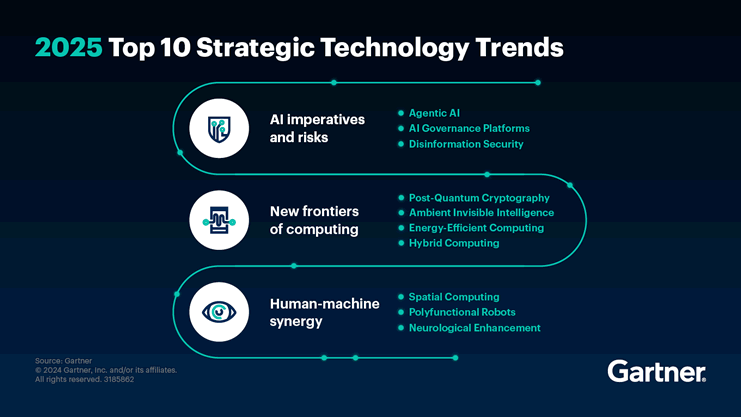
Trend 2: Advanced Agentic AI Decision Making Under Uncertainty
The evolution of **agentic AI decision making** is a cornerstone of future advancements. Agents will excel at making crucial choices even when faced with incomplete, ambiguous, or noisy information. This capability will be powered by sophisticated probabilistic reasoning and adaptive learning strategies. Techniques such as reinforcement learning and Bayesian networks will be pivotal in enabling agents to navigate complex, uncertain environments effectively. Advancements in decision-making algorithms will enable agents to make complex choices under uncertainty, leveraging techniques like reinforcement learning. (Source: [preliminary plan])
Trend 3: Predictive and Proactive Engagement
Agentic AI is moving beyond simple task execution. Agents will increasingly anticipate user or system needs based on learned patterns and contextual understanding. This proactive approach means they will offer solutions or take preventative actions *before* being explicitly prompted, dramatically enhancing efficiency and user experience. Agents will anticipate needs and act before being prompted, enhancing efficiency and user experience. (Source: [preliminary plan])

Trend 4: Sophisticated Multi-Agent Collaboration and Orchestration
The power of agentic AI is amplified when multiple agents work together. We will see more complex and effective collaborations, leading to emergent behaviors in “swarms” of agents and sophisticated orchestration for tackling large-scale, intricate tasks. Multiple agents will work together effectively, creating sophisticated multi-step solutions. (Source: [preliminary plan])
Trend 5: Domain-Specific Agentic AI Specialization
While general-purpose agents will continue to evolve, a significant trend is the development of highly specialized agentic AI. These agents will be tailored for specific industries or complex tasks, offering deeper expertise and more refined performance than their broader counterparts. Agents will be tailored for specific industries, offering personalized solutions. (Source: [preliminary plan])
Transformative Impact: Agentic AI on Software Development
The **impact of agentic AI on software development** is poised to be nothing short of revolutionary. From writing code to managing projects, agentic AI promises to reshape how software is created, tested, and maintained.
Automated Code Generation and Comprehensive Testing
Agentic AI can go beyond simple code suggestions. It can autonomously write complex code, generate relevant test cases, perform automated debugging, and even refactor existing codebases. This capability has the potential to dramatically accelerate development cycles and improve code quality. Agentic AI can write and debug code more efficiently, reducing the workload for human developers. (Source: Infosys Agentic AI, AWS Agentic AI)

Intelligent Project Management and Adaptive Planning
Managing software projects is complex. Agentic AI can analyze requirements, predict potential bottlenecks, dynamically adjust timelines, optimize resource allocation, and proactively identify risks. This intelligent oversight can lead to more efficient and successful project outcomes. Agents assist in project timelines, resource allocation, and risk assessment, optimizing software projects. (Source: AWS Agentic AI)
Enhanced User Experience (UX) Design and Personalization
Agentic AI can analyze user behavior, preferences, and feedback in real-time. This deep understanding can directly inform the design of more intuitive, personalized, and adaptive user interfaces, leading to significantly better user experiences. AI agents understand user needs, contributing to user-centered design. (Source: AWS Agentic AI)
Development of Self-Optimizing Software Systems
Applications built with agentic AI can continuously monitor their own performance in real-world conditions. They can identify areas for improvement and autonomously implement optimizations to enhance efficiency, security, and user satisfaction. This creates software that gets better over time. Applications continuously improve based on agentic AI insights, leading to better performance. (Source: Infosys Agentic AI)
Democratization of Software Creation
Agentic AI tools can significantly lower the technical barrier to entry for software development. This empowers individuals with less traditional coding expertise to conceptualize, build, and deploy sophisticated software applications, fostering innovation across a broader range of creators. Agentic AI lowers barriers to entry for creating complex software, enabling non-technical users to develop applications. (Source: AWS Agentic AI)
Agentic AI Decision Making: The Engine of Autonomy
The true intelligence and autonomy of agentic AI systems stem from their advanced **agentic AI decision making** capabilities. These are not simple `if-then` rules; they are sophisticated processes that enable agents to navigate complex realities.
The underlying mechanisms driving this intelligence include:
- Reinforcement Learning (RL): Agents learn optimal actions through a process of trial and error, receiving rewards for desirable outcomes and penalties for undesirable ones. This allows them to discover effective strategies in dynamic environments.
- Game Theory: Crucial in multi-agent scenarios, this branch of mathematics helps agents make decisions by considering the potential actions and reactions of other agents (both AI and human).
- Planning Algorithms: Techniques like A* search and Monte Carlo Tree Search (MCTS) are employed for complex problem-solving, allowing agents to map out optimal paths to achieve their goals.
- Probabilistic Reasoning: Using models such as Bayesian networks, agents can reason and make decisions even with incomplete or uncertain information, quantifying probabilities and making informed choices.
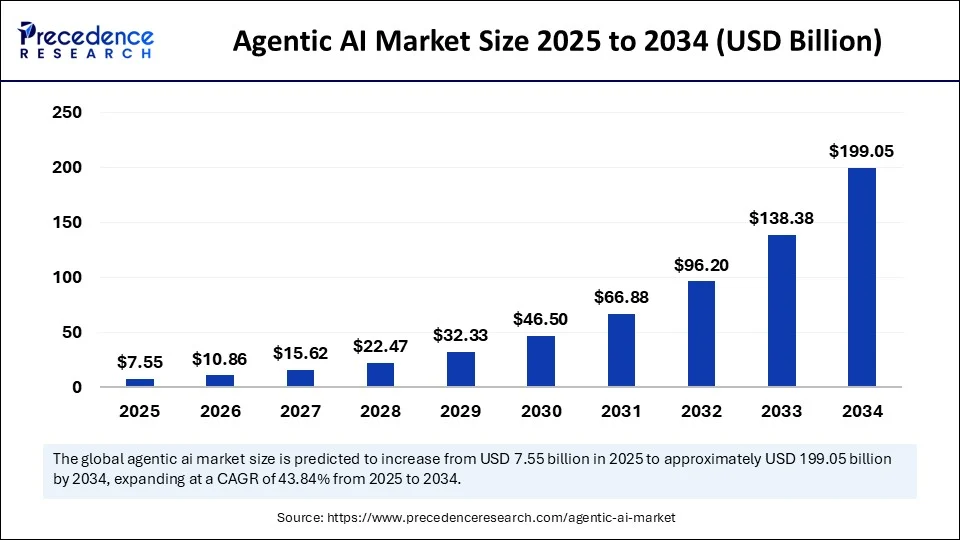
These decision-making frameworks power agentic AI in a myriad of real-world and hypothetical applications:
- Autonomous Vehicles: Agents make critical, split-second decisions regarding navigation, obstacle avoidance, and adherence to traffic laws in constantly changing road conditions.
- Algorithmic Trading: Agents execute trades based on complex market analysis and predictive models, aiming to optimize profit while managing risk in volatile financial markets.
- Robotic Surgery: Agents assist surgeons with precision and control, making micro-adjustments in real-time based on sensor feedback and surgical plans.
- *Research Integration*: The power of reinforcement learning and game theory is evident here. These advanced decision-making capabilities are crucial in scenarios demanding rapid, accurate choices under pressure.
The Era of Agentic AI Autonomous Systems
We are entering an era where **agentic AI autonomous systems** are no longer futuristic concepts but are increasingly being realized across a vast spectrum of industries. These systems embody the ultimate expression of agentic AI, performing complex tasks with sophisticated independence.
Consider the impact in various sectors:
- Robotics and Manufacturing: Autonomous robots are becoming the backbone of smart factories, handling complex assembly, meticulous quality control, and efficient logistics operations.
- Autonomous Vehicles: Self-driving cars, trucks, and drones are navigating our roads and skies, promising safer and more efficient transportation.
- Healthcare: Agentic AI systems are revolutionizing healthcare by aiding in complex diagnostics, generating personalized treatment plans, and enhancing precision in robotic-assisted surgeries.
- Finance: The financial sector is leveraging sophisticated agentic AI for algorithmic trading, autonomous fraud detection, and providing personalized, AI-powered financial advice.
- Customer Service: Advanced chatbots and virtual assistants, powered by agentic AI, are capable of complex problem-solving and delivering highly personalized customer interactions.
- Scientific Research: Agentic AI is accelerating discovery by designing experiments, analyzing massive datasets, and identifying novel patterns that human researchers might miss.

The common thread enabling true autonomy in these diverse systems is the continuous loop of perception, intelligent planning, and autonomous action, all driven by advanced **agentic AI decision making**.
Navigating the Landscape: Challenges and Ethical Considerations
As agentic AI continues its rapid ascent, it’s crucial to acknowledge and address the significant challenges and ethical considerations that accompany these **agentic AI trends 2025**. Responsible development and deployment are key.
Accountability and Responsibility
A fundamental question arises: who is liable when an autonomous agent makes a mistake or causes harm? Establishing clear lines of accountability and responsibility for the actions of autonomous AI systems is a complex but necessary task. This challenge is central to building trust in agentic AI. (Source: AI Fairness, Ethics, Bias, Accountability)
Bias in Decision Making
Agentic AI systems learn from data. If that data contains inherent biases, the AI’s **agentic AI decision making** can perpetuate and even amplify unfair or discriminatory outcomes. Identifying and mitigating these biases in training data and algorithmic processes is paramount for equitable AI. (Source: AI Regulations UK)
Security and Robustness
Autonomous systems are attractive targets for adversarial attacks. Ensuring the security and robustness of agentic AI against manipulation or malicious interference is critical, especially for systems operating in sensitive or critical infrastructure. (Source: Cybersecurity Tips, AI Cyber Defense, Cybersecurity Threats 2025)
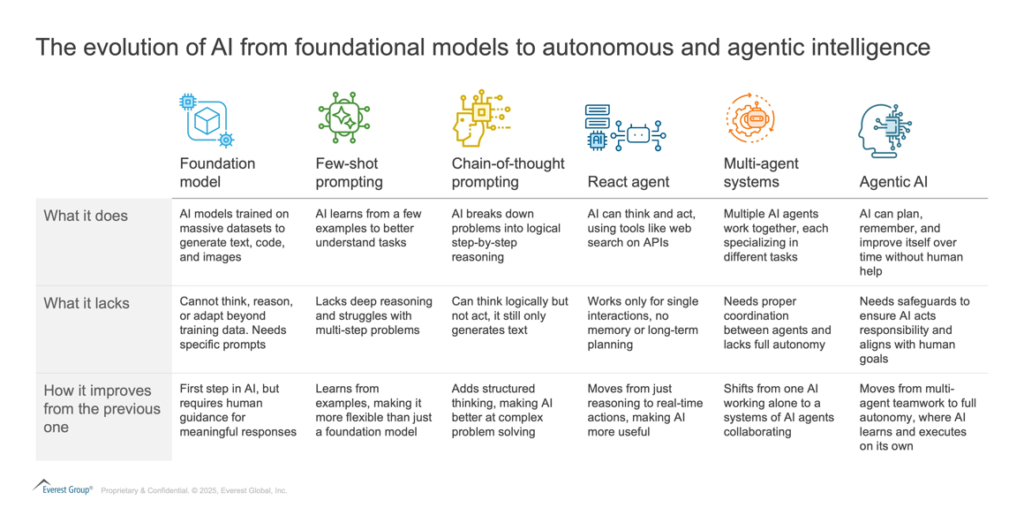
Job Displacement and Economic Impact
The increasing automation driven by agentic AI naturally raises concerns about job displacement and the broader economic impact on the workforce. Societies and economies must prepare for these shifts through education, retraining, and policy adjustments. (Source: AI Impact on UK Jobs, Microsoft AI Layoffs)
Ethical Frameworks and Governance
To navigate these complexities, the development and implementation of clear ethical guidelines and robust regulatory frameworks are essential. Responsible oversight is needed to ensure that agentic AI is designed, deployed, and used in ways that benefit humanity. (Source: Agentic AI Governance Framework)
Conclusion
The advent of agentic AI marks a significant leap forward in artificial intelligence. The **agentic AI trends 2025** we’ve explored—hyper-autonomy, advanced decision-making, proactive engagement, multi-agent collaboration, and specialization—collectively point towards a future where AI systems are increasingly intelligent and autonomous. The profound **impact of agentic AI on software development** promises to accelerate innovation and redefine the creation process, while the emergence of sophisticated **agentic AI autonomous systems** is set to transform industries. Understanding the core of **agentic AI decision making** is fundamental to appreciating the power and potential of these systems.

As we look ahead, agentic AI will undoubtedly reshape our world, bringing immense potential alongside critical responsibilities. Staying informed about these rapidly evolving **agentic AI development trends 2025** is not just beneficial; it’s essential for navigating the future. Engaging with the ethical implications and exploring the current landscape of agentic AI tools and platforms will empower us to harness this transformative technology for the betterment of society.
“`


